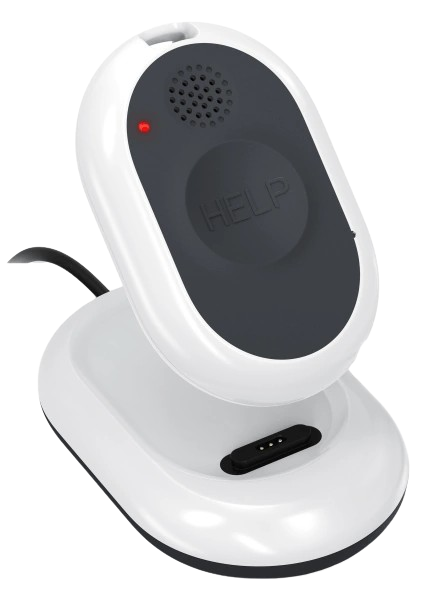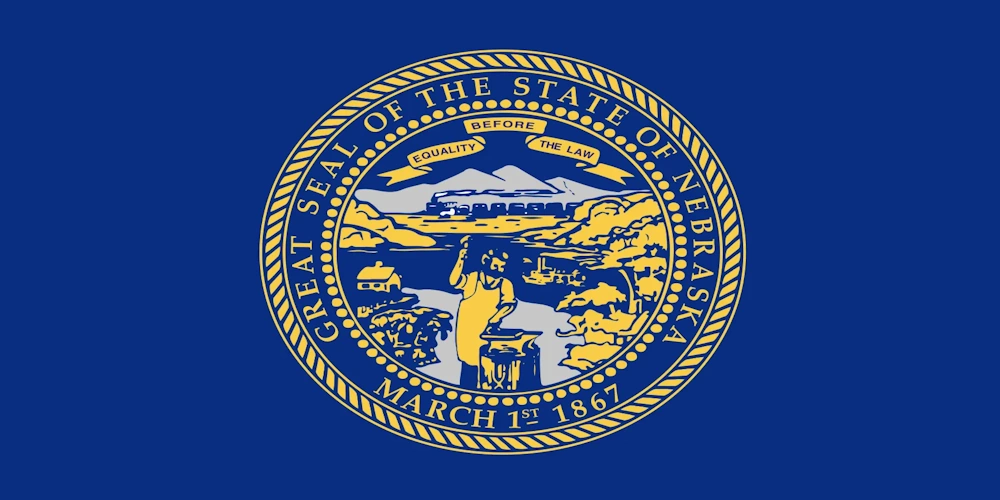In Tennessee, many industries—including healthcare, logistics, construction, agriculture, and manufacturing—depend on employees who work independently in the field, on job sites, or in remote settings. These lone workers face increased risks because they perform tasks without direct supervision or immediate access to assistance. Whether it's a night-shift security guard or a utility line technician working in a rural area, ensuring the safety of isolated workers is essential to both legal compliance and employee well-being.
Tennessee operates its own OSHA-approved state safety plan through the Tennessee Occupational Safety and Health Administration (TOSHA), which is part of the Tennessee Department of Labor and Workforce Development (TDLWD). This agency is responsible for developing and enforcing workplace safety standards across most public- and private-sector employers in the state.
On This Page
Our Guide To Lone Worker Safety Policy And Legislation In Tennessee
Because Tennessee runs a state OSHA program, TOSHA’s regulations must be at least as effective as those of federal OSHA. While there is no regulation specifically titled for “lone workers,” many of the general standards enforced by TOSHA are applicable to employees working in isolation.
The General Duty Clause—found in both federal and state OSHA frameworks—requires employers to provide a workplace free from recognized hazards that could cause death or serious harm. This obligation extends to situations where employees work alone and may face delayed medical or emergency support.
TOSHA also offers employer consultation programs, training, and compliance assistance to help businesses identify workplace hazards and implement safety measures tailored to lone worker conditions.
How Tennessee Defines A Lone Worker
Tennessee law does not provide a statutory definition of "lone worker," but in workplace safety contexts, the term refers to employees who perform their job duties in isolation—without direct supervision or coworkers nearby to assist in case of an emergency.
In Tennessee, lone workers may include:
- Home healthcare professionals
- Security guards stationed alone
- Overnight custodians or maintenance workers
- Utility and construction workers at remote sites
- Agricultural workers on large or rural farms
- Delivery drivers and field service technicians
These workers often face unique risks that require additional planning and protective measures from employers.
Employing A Lone Worker In Tennessee
Tennessee employers are responsible for evaluating the risks associated with lone work and ensuring that policies and procedures are in place to mitigate those risks. While there are no specific rules for lone workers under TOSHA, employers must apply broader occupational safety requirements to any employee working in isolation.
Key safety strategies include:
- Performing Risk Assessments: Analyze the potential hazards specific to the lone worker’s job and location.
- Implementing Communication Protocols: Use mobile phones, radios, or lone worker apps to maintain regular contact.
- Setting Emergency Procedures: Develop and train workers on clear steps to take in case of injury, illness, or threat.
- Monitoring and Check-Ins: Require scheduled status updates through automated or manual systems.
- Providing Safety Training: Ensure all lone workers understand the risks, tools, and support systems available to them.
By implementing these practices, employers show due diligence in protecting their workforce and staying in compliance with TOSHA requirements.
Learn How You Can Protect Your Employees With Loneworker.com

With Loneworker.com you can be equipped with the knowledge and the means to protect your employees and protect your business. Contact us today to learn more about how Loneworker.com can protect you and your employees.
How The Safe Lone Worker App Can Protect Tennessee Lone Workers And Employers
The Safe Lone Worker app gives Tennessee employers a smart and effective tool for safeguarding their isolated employees. With built-in features such as GPS tracking, scheduled check-ins, panic alerts, and automatic fall detection, the app ensures workers are never completely alone—even in high-risk or remote locations.
This technology helps businesses across Tennessee maintain real-time awareness of employee safety, meet TOSHA expectations, and reduce response times in emergencies.
Tennessee Lone Worker Policies
Tennessee operates its own OSHA-approved workplace safety program through the Tennessee Occupational Safety and Health Administration (TOSHA), under the Tennessee Department of Labor and Workforce Development. TOSHA regulations cover both private- and public-sector workers, enforcing standards that are at least as protective as federal OSHA laws.
This article is intended for general guidance and should not be used as a substitute for legal advice or official regulatory consultation. For the most accurate and up-to-date information, visit the TOSHA website.
Tennessee Lone Worker Resources
OHS Contact Centre
- 1-866-415-8690
CDC / NIOSH
- 800-232-4636

Affordable Monitoring For Lone Workers In Tennessee

-
 Monitoring Your Employees' Safety
Monitoring Your Employees' Safety
-
 GPS Tracking And Monitoring
GPS Tracking And Monitoring
-
 Man Down Panic Alerts
Man Down Panic Alerts
-
 24/7 Protection Anywhere
24/7 Protection Anywhere
Lone Worker Legislation
Lone Worker Safety Policies And Legislation By State
-
 Alabama State Safety Policies And Legislation
Alabama State Safety Policies And Legislation
-
 Alaska State Safety Policies And Legislation
Alaska State Safety Policies And Legislation
-
 Arizona State Safety Policies And Legislation
Arizona State Safety Policies And Legislation
-
 Arkansas State Safety Policies And Legislation
Arkansas State Safety Policies And Legislation
-
 California State Safety Policies And Legislation
California State Safety Policies And Legislation
-
 Colorado State Safety Policies And Legislation
Colorado State Safety Policies And Legislation
-
 Connecticut State Safety Policies And Legislation
Connecticut State Safety Policies And Legislation
-
 Delaware State Safety Policies And Legislation
Delaware State Safety Policies And Legislation
-
 Florida State Safety Policies And Legislation
Florida State Safety Policies And Legislation
-
 Georgia State Safety Policies And Legislation
Georgia State Safety Policies And Legislation
-
 Hawaii State Safety Policies And Legislation
Hawaii State Safety Policies And Legislation
-
 Idaho State Safety Policies And Legislation
Idaho State Safety Policies And Legislation
-
 Illinois State Safety Policies And Legislation
Illinois State Safety Policies And Legislation
-
 Indiana State Safety Policies And Legislation
Indiana State Safety Policies And Legislation
-
 Iowa State Safety Policies And Legislation
Iowa State Safety Policies And Legislation
-
 Kansas State Safety Policies And Legislation
Kansas State Safety Policies And Legislation
-
 Kentucky State Safety Policies And Legislation
Kentucky State Safety Policies And Legislation
-
 Louisiana State Safety Policies And Legislation
Louisiana State Safety Policies And Legislation
-
 Maine State Safety Policies And Legislation
Maine State Safety Policies And Legislation
-
 Maryland State Safety Policies And Legislation
Maryland State Safety Policies And Legislation
-
 Massachusetts State Safety Policies And Legislation
Massachusetts State Safety Policies And Legislation
-
 Michigan State Safety Policies And Legislation
Michigan State Safety Policies And Legislation
-
 Minnesota State Safety Policies And Legislation
Minnesota State Safety Policies And Legislation
-
 Mississippi State Safety Policies And Legislation
Mississippi State Safety Policies And Legislation
-
 Missouri State Safety Policies And Legislation
Missouri State Safety Policies And Legislation
-
 Montana State Safety Policies And Legislation
Montana State Safety Policies And Legislation
-
 Nebraska State Safety Policies And Legislation
Nebraska State Safety Policies And Legislation
-
 Nevada State Safety Policies And Legislation
Nevada State Safety Policies And Legislation
-
 New Hampshire State Safety Policies And Legislation
New Hampshire State Safety Policies And Legislation
-
 New Jersey State Safety Policies And Legislation
New Jersey State Safety Policies And Legislation
-
 New Mexico State Safety Policies And Legislation
New Mexico State Safety Policies And Legislation
-
 New York State Safety Policies And Legislation
New York State Safety Policies And Legislation
-
 North Carolina State Safety Policies And Legislation
North Carolina State Safety Policies And Legislation
-
 North Dakota State Safety Policies And Legislation
North Dakota State Safety Policies And Legislation
-
 Ohio State Safety Policies And Legislation
Ohio State Safety Policies And Legislation
-
 Oklahoma State Safety Policies And Legislation
Oklahoma State Safety Policies And Legislation
-
 Oregon State Safety Policies And Legislation
Oregon State Safety Policies And Legislation
-
 Pennsylvania State Safety Policies And Legislation
Pennsylvania State Safety Policies And Legislation
-
 Rhode Island State Safety Policies And Legislation
Rhode Island State Safety Policies And Legislation
-
 South Carolina State Safety Policies And Legislation
South Carolina State Safety Policies And Legislation
-
 South Dakota State Safety Policies And Legislation
South Dakota State Safety Policies And Legislation
-
 Tennessee State Safety Policies And Legislation
Tennessee State Safety Policies And Legislation
-
 Texas State Safety Policies And Legislation
Texas State Safety Policies And Legislation
-
 Utah State Safety Policies And Legislation
Utah State Safety Policies And Legislation
-
 Vermont State Safety Policies And Legislation
Vermont State Safety Policies And Legislation
-
 Virginia State Safety Policies And Legislation
Virginia State Safety Policies And Legislation
-
 Washington State Safety Policies And Legislation
Washington State Safety Policies And Legislation
-
 West Virginia State Safety Policies And Legislation
West Virginia State Safety Policies And Legislation
-
 Wisconsin State Safety Policies And Legislation
Wisconsin State Safety Policies And Legislation
-
 Wyoming State Safety Policies And Legislation
Wyoming State Safety Policies And Legislation







